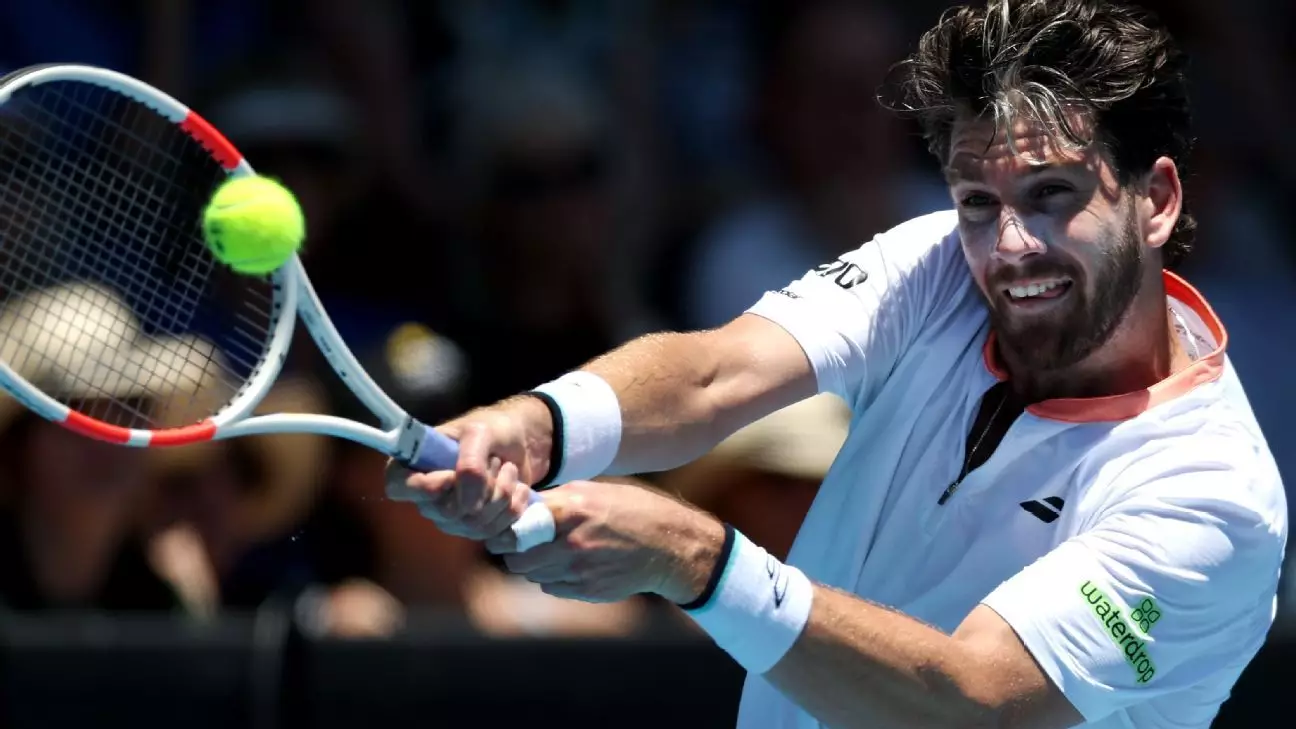In a startling moment at the ATP Tour tournament in Auckland, British tennis player Cameron Norrie unintentionally caused a stir when a racquet he tossed lightly struck a spectator. The incident occurred as Norrie was grappling with match point against Facundo Diaz Acosta, an Argentine player. Though the racquet made contact with a woman in a court-side box, resulting in no injury, the event raised eyebrows and served as a reminder of the delicate balance athletes must maintain regarding their conduct on the court.
Norrie’s action, while seemingly innocuous—merely a toss—was nevertheless a breach of decorum that could have led to more severe consequences had the circumstances been different. The chair umpire issued him a warning, a decision that underscored the seriousness of such actions in professional sports. With memories still fresh of similar incidents leading to harsher penalties, the gravity of the situation was not lost on spectators and players alike.
Norrie was quick to express his regret, emphasizing that the act was not typical of his character. “I wasn’t meaning to do that but it’s still not ideal to be doing that,” he stated, demonstrating an awareness of the potential fallout stemming from his inconsiderate throw. The quick exchange between Norrie and the spectator, who responded with laughter and reassured him that she was okay, indicates a light-hearted resolution; however, it also brings to light the thin line athletes walk between intensity and sportsmanship.
Incidents like these highlight the precarious nature of emotional regulation in high-stakes environments. Athletes are often under immense pressure, and a moment of frustration can lead to actions that spiral quickly out of control. This incident serves as a stark reminder of the international standards of behavior expected from professional athletes. Past examples, such as Novak Djokovic’s disqualification at the 2020 US Open, show how quickly situations can escalate when players lose focus.
Norrie’s candid admission of fault illustrates the importance of accountability in sports. “I want to apologize in general. I’m not happy with how I behaved,” he said, reinforcing that sportsmanship extends beyond self-regulation; it encompasses the well-being of everyone involved, including spectators. This principle was somewhat echoed in the incidents involving players like Miyu Kato and Marc Polmans, both of whom faced disqualification for actions that inadvertently impacted others on the court.
Such events serve as educational moments for both players and fans, reiterating the need for players to maintain awareness of their surroundings while competing. They also facilitate discussions about the emotional turbulence athletes face and the necessity for mental conditioning alongside physical training.
As Norrie walks away from the Auckland incident, both he and spectators can glean valuable insights. Mistakes in sports are inevitable, but the responses to those mistakes define one’s legacy. Athletes must learn to navigate their reactions with grace, embodying the standards expected of role models.
Ultimately, the incident is less about the racquet itself and more about the broader implications of behavior in high-pressure environments. Norrie’s experience should foster a dialogue about the need for mindfulness, as both players and fans engage in the electric world of sports, where every action counts, and accountability reigns paramount.

